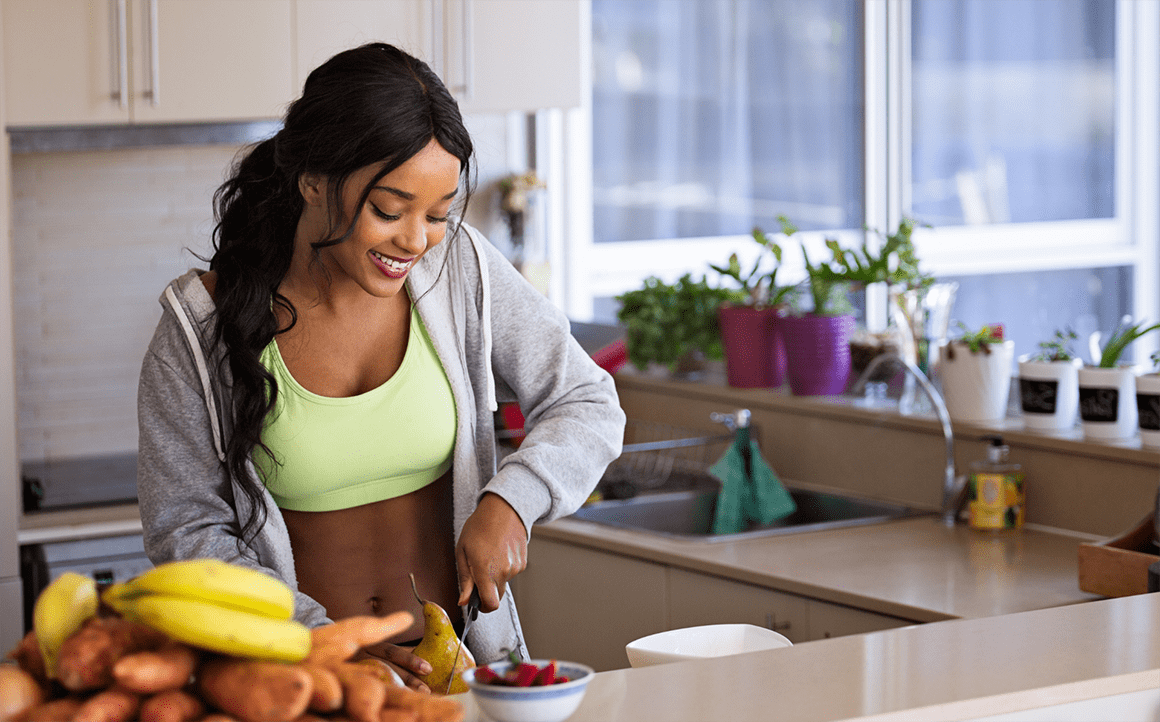Donna Lea Jones Shares Ways to Eat Healthier in 2020 Without Breaking the Bank

One person dies every 37 seconds in the United States from cardiovascular disease, which is roughly 647,000 deaths a year—and that number is rising. When you step into a grocery store, it isn’t difficult to see why this is happening. When buying five boxes of macaroni and cheese is cheaper than buying one head of cauliflower, consumers on a tight budget will usually choose the processed option.
While you might think that this makes it impossible to eat healthy on a limited budget, there is another way. As a foodie, yoga enthusiast, and passionate volunteer, Donna Lea Jones of Orlando, Florida, knows how impactful a healthy diet can be on your quality of life, and has outlined several ways to eat healthier in 2020 without breaking the bank.
Eat Fresh Fruits and Vegetables
Whenever possible, buy fresh fruits and vegetables. If there is an option to buy fresh produce ‘pre-cut’, always opt for the uncut option. Not only is pre-cut more expensive, but it will also expire sooner. Donna Lea Jones explains that even though you will have to do more prep work when you buy fresh produce, it will save you more money in the long run.
To further expand your horizons, consider only buying fresh produce that is on sale. This will not only potentially introduce you to a new favorite, but is also kinder to your wallet. Don’t have the budget to buy vegetables that are out of season? Donna Lea Jones has a solution for that as well.
Frozen Fruits and Vegetables
Donna Lea Jones swears by this budgeting trick: buy your produce frozen. While you might think that frozen fruits and vegetables are less nutritious than fresh, freezing actually helps retain the nutrient content of produce.
Fresh fruits and vegetables actually produce enzymes called trypsin and chymotrypsin that cause loss of color, flavor, and nutrients just after harvest. But the reaction can be stopped by deactivating the enzyme, which freezing can do. However, brassica veggies, such as cabbage, kale, brussels sprouts, and cauliflower, are typically better fresh than frozen because they retain more phytochemicals and antioxidants this way. However, fresh produce is of course not immune to nutrient loss. It is important to note as well, that the nutrients in frozen vegetables will begin to break down after one year, so don’t wait too long to consume them.
Canned alternatives to meat
Eating meat can be expensive, so consider canned alternatives for your protein. Adult men need 55 grams of protein a day, while an adult woman needs 46 grams. It doesn’t require a lot of food to reach these requirements. One egg, for example, contains 6 grams of protein, while one cup of cooked lentils gives you 18 grams of protein. Donna Lea Jones suggests eating black beans, as they are protein powerhouses, with 7 grams of protein in a ½ cup serving. Not only are black beans an excellent and affordable form of protein, but they are also an excellent source of fibre and other vitamins.
Donna Lea Jones also suggests opting for canned tuna. Canned tuna is inexpensive and is an excellent source of protein, healthy fats, vitamins, and minerals. Opt for canned light tuna, as it has lower mercury levels. Consider also trying canned chicken, as no nutritional value is lost when compared to fresh and the price is also more affordable.
Make Your Own Salad Dressing
Consider making your own sauces, dips and salad dressings. While it might be our first inclination to purchase readymade options, this can actually add up very quickly, and often contains unwanted hidden ingredients.
When you make these items at home, you control what goes into them. A great way to get started making your own dressing is to buy olive oil, which can also be used for cooking, and balsamic vinegar, which can also be used to cook your vegetables in.
Freeze What You Don’t Use
Lastly, don’t forget about your freezer. When a typically unaffordable item is on sale, like a protein, consider buying it, portioning it off, and then freezing it for future use. Additionally, when you cook a big batch of food but are unable to eat it all before it expires, freeze it. Your freezer will become your best friend when it comes to eating healthy on a small budget.
Final Thoughts from Donna Lea Jones
Finally, Donna Lea Jones suggests creating a plan. Preparing your food ahead of time will not only save you time—as opposed to cooking for every meal—but will also save you money. When we cook on a meal-by-meal basis, we are more likely to allow certain ingredients to go bad, thus wasting food.





Leave a Comment